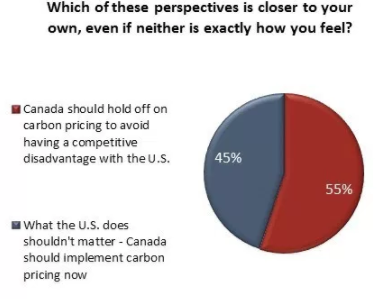A new study conducted by the Angus Reid institute shows Canadian support for a carbon tax is starting to cool off as the plan becomes a reality.

Several provinces, including B.C., have already put in place plans to reduce their own emissions.
LISTEN: New poll shows Canadian support for carbon tax cooling
However, the poll found half the population in every region (except Quebec) are against a nationwide carbon price for provinces that cannot implement their own plan.
In B.C. support has dropped to a 50/50 split.

“It’s the old story. Hey everyone, do you like the idea of doing this? Yes, Yes we do! Hey everyone, here’s how much it’s going to cost! Oh, I’m not so sure I like this anymore, Shachi Kurl, Executive Director of the Angus Reid Institute told Jon McComb.
One major concern for Canadians is industry competitiveness with our neighbours south of the border.
U.S. President Donald Trump has announced his country would be leaving the Paris Agreement to limit emissions which has led to concerns that a carbon pricing plan would lead to a competitive disadvantage with American businesses.
In B.C., Kurl says we’re slightly more supportive than the national average.
“I suspect there are a number of British Columbians that have forgotten that we have a carbon tax in this province because it’s something that has just been worked into the day-to-day costs. It’s a different story if we have to start paying more.”
The federal government has set a $50 per tonne target for 2022.







Comments